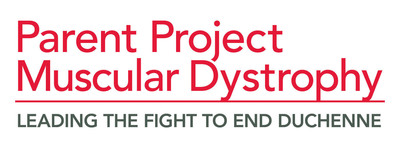HACKENSACK, N.J., June 9, 2016 /PRNewswire-USNewswire/ -- Parent Project Muscular Dystrophy (PPMD), a nonprofit organization leading the fight to end Duchenne muscular dystrophy (Duchenne), announced today plans to award Dr. Guy Odom, a research assistant professor of neurology at the University of Washington (UW), a $49,000 grant for his work in gene therapy. With a long history of funding early stage research in Duchenne, PPMD believes that the technology being developed by Dr. Odom and his UW Medicine team will help optimize the promise of gene therapy as a treatment for this rare disease.

Duchenne muscular dystrophy is the most common fatal genetic disorder diagnosed in childhood, affecting approximately one in every 5,000 live male births.
Gene therapy relies on the principle that a shortened but highly functional micro-dystrophin can be introduced via a viral vector. A significant hurdle, however, is the possibility of an immune response against micro-dystrophin as the newly expressed micro-dystrophin has never been encountered before in people with Duchenne. This immune response could interfere with the expression of micro-dystrophin, as well as muscle growth and repair.
Abby Bronson, Senior Vice President of Research Strategy for PPMD, explains the strategy this way: "The adaptive arm of the immune response works by the T-cells recognizing a small part (the epitope) of the antigen (the micro-dystrophin in this case) and binding to it, leading to neutralization and elimination from the muscle. Using computer modelling and previous human epitope data (immunoinformatics), Dr. Odom seeks to ultimately design a micro-dystrophin that avoids being recognized by the immune system, potentially enabling safer and longer-term effective treatments for people with Duchenne."
"As a key pre-clinical step forward, this funding will allow us to demonstrate whether multiple epitopes within dystrophin can be redesigned while maintaining function with greatly reduced immunogenicity," Dr. Odom said.
As a proof-of-principle, the redesigned micro-dystrophin candidates will be initially screened for stability in mdx skeletal muscle cell cultures followed by testing the "best' candidates in mdx mice for function and stability. Because heart muscle is so important in Duchenne, these micro-dystrophins will also be tested in cardiac cells in the mdx mice for function. The 'best" micro-dystrophins will be further tested for immune reactivity by using T-cells previously derived from Duchenne patients, shown to be responsive to the original epitopes.
According to Bronson, "Our community, for many years now, has been interested in the potential of gene therapy as a treatment for Duchenne. Dr. Odom, in anticipating potential barriers in the functionality of gene therapy, is addressing a possible immune response head on. It is this kind of forward-looking, out-of-the-box thinking that PPMD is proud to support and nurture."
To learn more about PPMD's extensive research portfolio, please visit ParentProjectmd.org.
About Parent Project Muscular Dystrophy
Duchenne is a fatal genetic disorder that slowly robs young men of their muscle strength. Parent Project Muscular Dystrophy (PPMD) is the largest most comprehensive nonprofit organization in the United States focused on finding a cure for Duchenne muscular dystrophyour mission is to end Duchenne.
We invest deeply in treatments for this generation of young men affected by Duchenne and in research that will benefit future generations. We advocate in Washington, DC, and have secured hundreds of millions of dollars in funding. We demand optimal care, and we strengthen, unite and educate the global Duchenne community.
Everything we doand everything we have done since our founding in 1994helps boys with Duchenne live longer, stronger lives. We will not rest until every young man has a treatment to end Duchenne. Go to www.ParentProjectMD.org for more information or to learn how you can support our efforts and help families affected by Duchenne. Follow PPMD on Facebook, Twitter, and YouTube.
About UW Medicine
Visit our website or follow UW Medicine on Facebook, Twitter and YouTube.
Logo - http://photos.prnewswire.com/prnh/20100119/DC39975LOGO
To view the original version on PR Newswire, visit:http://www.prnewswire.com/news-releases/parent-project-muscular-dystrophy-awards-university-of-washington-grant-to-support-technology-to-help-optimize-gene-therapy-300280349.html
SOURCE Parent Project Muscular Dystrophy





